Search Results for Tag: Africa
Entries still open for German Development Media Awards
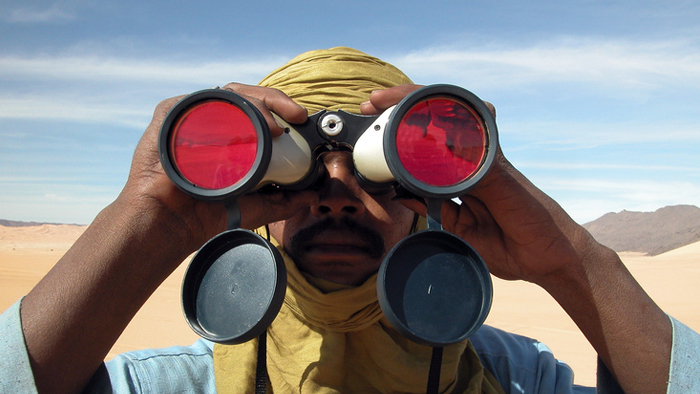 Have you produced an outstanding story on development or human rights issues, or know a colleague who should be nominated for their reporting in these fields?
Have you produced an outstanding story on development or human rights issues, or know a colleague who should be nominated for their reporting in these fields?
Entries for the German Development Media Awards are still open – the deadline for submission is May 31, 2013.
The awards champion independent media across the world and put the spotlight on journalists telling important stories affecting their communities, countries and regions.
The awards are a new initiative by the German Federal Ministry for Economic Cooperation and Development (BMZ) and Germany’s international broadcaster, Deutsche Welle.
Six prizes worth 2,000 euros each will be presented as part of the awards – one each to a journalist from Africa, Asia, Latin America, the Middle East, Eastern Europe and Germany.
![]() read more
read more
Innovation driven by Africans
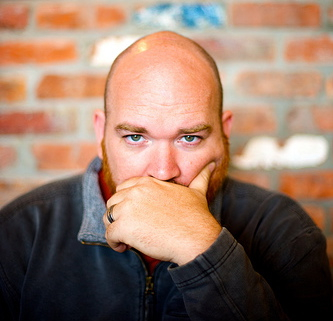 In many African countries power cuts and poor access to the internet are common. But this is just one way of looking at the continent. Another way is to explore the dynamic and confident tech start-up scene brimming with creative ideas. Erik Hersman, technology blogger and co-founder of the internationally renown crowd-sourcing platform Ushahidi, is working to better connect African innovators. In Nairobi he founded iHub – a centre supporting a thriving technology community that has inspired more hubs across Africa.
In many African countries power cuts and poor access to the internet are common. But this is just one way of looking at the continent. Another way is to explore the dynamic and confident tech start-up scene brimming with creative ideas. Erik Hersman, technology blogger and co-founder of the internationally renown crowd-sourcing platform Ushahidi, is working to better connect African innovators. In Nairobi he founded iHub – a centre supporting a thriving technology community that has inspired more hubs across Africa.
On Twitter Hersman is known as @whiteafrican – he grew up in Kenya and Sudan and these days lives in Nairobi. If you’re looking into innovation in Africa you can’t go past Hersman. He’s an expert on the technology landscape of the continent – which is completely different to Europe or the USA. At the recent German internet conference, re:publica, Hersman presented the prototype of a mobile router designed to provide an internet connection even in remote and difficult conditions. This battery powered device called BRCK can switch between ethernet, WiFi, and 3G or 4G mobile phone networks and allow up to 20 users to connect to the internet. DW Akademie’s Steffen Leidel caught up with Erik Hersman at re:publica in Berlin to talk about innovation in Africa.
![]() read more
read more
Checking the facts in Africa
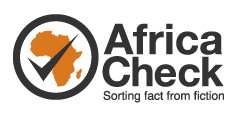 The idea of Africa Check is straightforward. Investigate claims made in public; check the facts; and, publish the findings.
The idea of Africa Check is straightforward. Investigate claims made in public; check the facts; and, publish the findings.
Africa Check was launched in 2012, and is a non-profit organisation led by the media development agency AFP Foundation and the Journalism Department of the University of the Witwatersrand in Johannesburg.
The organisation not only examines the public claims of politicians, leaders in civil society, government agencies and NGOs, but also checks the facts journalists use in their stories.
Peter Cunliffe-Jones of the AFP Foundation is the Director of Africa Check and says getting the facts right is the “essence” of journalism. But under the pressure to feed 24 hour news, and working across more topics, journalist may feel they “don’t have the time and the expertise, or even know where to look” to verify information.
Reading an Africa Check report is a little bit like a mini-lesson in the basics of journalism. You also see that this project has the potential to have a high impact on African media and perhaps serve as a model in other countries or regions.
![]() read more
read more
Election reporting does and don’ts – after polling day
In some countries, election results are announced within a day, in others it can take a week or longer. This period around the release of the results is often the most tense, and can be marred by violence. In the third part of our series on election reporting, DW Akademie’s Kate Hairsine brings you some dos and don’ts for reporting elections after polling day.
DO be responsible when reporting incidents of violence
It is important to inform people about violent incidents, but you need to do so in a responsible way. Following the 2007 elections in Kenya, the local media was criticized for further inflaming violence.
– Always verify facts before reporting: Where exactly did the incident take place? Who was involved? How many people were involved? Were people killed or injured? What triggered the incident?
– Try to find several sources of information (witnesses, journalists on location, police, army, doctors at the local hospital). Name your sources in the report (and don’t rely on SMS messages from people at the scene who aren’t considered reliable sources!)
– Try to get comments on the violence from people from different ethnic groups and different sides of the political spectrum (but do not air calls for retaliation or more violence)
– Don’t use emotional language or comment on the incident yourself
– Local language stations may be criticized for their neutral broadcasting as they are often expected to share community views. Explain your reasons for being neutral on air
DO take care when reading out SMS messages
Many radio and television stations read out SMS messages or have an SMS ticker. These might represent people’s opinions about the elections or results, but hateful messages have no place on air. Also, be balanced by reading out messages from diverse areas, or from people supporting different parties or groups.
DO cut off callers using hate speech on air
Talkback radio gives people the opportunity to be heard. Plus it’s a lively and cheap way to get diverse opinions on air. But hosts need to be extremely careful that their show doesn’t inflame tensions.
– Cut off callers (and politicians) who use hate speech, ethnic baiting or call for violence
– Explain to the listeners that cutting off such callers is in line with station’s policy and your radio won’t support violent talk (so that you don’t seemed biased)
– Ask listeners to call in with their comments about hate speech
– While some stations argue that airing inflammatory language is good for ratings, the risk of conflict in this post-election period is just too high. Responsibility comes before ratings!
DO prepare messages of peace
If you live in a country with a history of conflict, peace messages, songs and jingles featuring prominent individuals (imams, priests, musicians, movie stars, sports stars, even gangster groups who have promised not to stir up trouble) can go far to calm tensions. Alternatively, ask children for messages of peace. Another idea is to get different groups of people, such as the elderly, market women, or school children, to sing the national anthem (or another song associated with national pride) and play the different versions together with peace messages
DO continue to monitor the counting
Just because the polling day is over, it doesn’t mean that the media’s watchdog role is finished. Things to check:
– Can observers, the media and nominated political party representatives freely enter all tally centers (including at local, district and and regional levels)?
– Do the centers have adequate lighting and security?
– Is the counting taking longer than normal? Why?
DO put the results in context
When the results are finally announced …
– Seek comments from the winners and losers
– Mention the final turnout figure
– Get some reactions from a diverse cross section of people on the street.
– Add some independent analysts and comments from international and domestic observers
DO analyze the results
Your job isn’t over when the results are announced.
– How much did someone win by? Who mainly voted for them (male, female, old young, a particular ethnic group)? Has this changed since the last elections.
– What percentage of people voted? Were there particular groups who didn’t vote? Why? Has this changed from the last elections?
– How many invalid votes where there? Where their regions with more invalid votes? How does this compare to last election?
– What are the country’s prospects under the elected leadership in various fields, such as the economy, law and internal security?
DON’T broadcast political press releases about vote rigging without context
Politicians who have lost the vote (or look like loosing) often favor the strategy of putting out a press release alleging the elections were rigged (which may or may not be true). Don’t just read out the whole press release on air. Rather
– Summarize the allegations using neutral language
– Add information from independent election monitors
– Seek a comment on the allegations from the electoral commission. If they say they will address the comments a later press conference, mention this in your reporting
DON’T forget to continue to monitor the government
As an election reporter, you have a sound grasp of what promises the new government made during its campaign so you are ideally placed to follow up whether its living up to those promises.
For more information, check out UNESCO’s list of online election reporting resources as well as the ACE Electoral Knowledge Network, which is an amazing source information about elections and electoral systems worldwide.
I also highly recommend the “Media & Elections” handbook as well as the “Election Reporting Handbook” by the International Journalist Federation
Election reporting dos and don’ts – polling day
Covering election campaigns was the focus of Part one in our series on Election Reporting: dos and don’ts. In this next post, DW Akademie’s Kate Hairsine explains what journalists need to think about on the big day – polling day.
DO be familiar with the election process
It might sound obvious, but as a reporter, you need need to know the ins and outs of the election process because otherwise you can’t effectively monitor the elections and report on any problems and misconduct. Some of the things you need to know BEFORE you go out to report on election day include:
– What is the procedure for opening the ballot station?
– What are the rules about campaign materials and canvassing near polling stations?
– What steps do voters have to go through to cast their votes?
– What is the procedure for sealing ballot boxes when voting closes?
– Where does the vote counting take place and who is entitled to accompany the ballot boxes there?
– Who is allowed to be present while votes are counted?
– How does the vote counting work exactly?
DO be at the polling station before it opens
If you have been allocated a particular polling station or district, you need to be there before the doors open. It gives you time to assess the atmosphere and talk to some people before you make your first report.
– Check if polling officials have arrived at the prescribed time
– Check if campaign material has been removed from inside the prescribed area around the polling station
– Ask people if they have been intimidated on the way to the polling station or while they are standing in line
– Ask if people have been promised anything such as food or money for their vote
– Find out if people were able to travel easily to the polling station: are roads open, are there any impediments such as a collapsed bridge or military checkpoints making the journey to the polling booth longer?
– Talk to any physically disabled people, the elderly or pregnant women in queue about how they got to the polling station and if there were any special provisions available for their transport
– Ask what time people started queuing up and why they are making the effort to vote
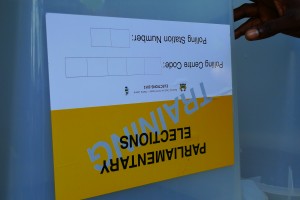
In Sierra Leone, election officials at one polling station tried unsuccessfully to use this ‘training’ ballot box
DO monitor the opening of the polling station
Depending on your country’s procedure for opening the polling station, there are several important points to look for here:
– Check if there are the correct number of ballot boxes (I have been at a polling booth where there should have been four ballot boxes – one each for president, parliamentarian, mayor and councilor – but one was missing, causing an extremely tense situation)
– Check if the ballot boxes are the correct ones for use in the elections, for example, do they have a serial number on them which allows the box to be traced in case of irregular voting
– Watch while ALL of the ballot boxes are opened in front of those present to show they are empty
– Monitor whether ALL the ballot boxes are correctly signed and sealed before voting starts
– Report whether the polling station opens on time
– Report whether election observers are present
– Watch who are the first to vote – are pregnant women, the elderly and the disabled allowed to go to the front of the queue?
– Observe if people are able to cast their vote in secrecy
DO keep talking to people during the day
You might have been up since four in the morning and feel like you have talked to every possible group of people at the polling station, but it is important to keep alert and keep monitoring the voting process even if everything seems to be running smoothly.
– Find out if any people are leaving without casting their vote because they are fed up of waiting
– Ask if there are any people who are unable to vote because their name isn’t on the electoral roll
– Monitor whether there are enough ballot papers
– Look for any illegal canvassing
– Ask people of various ages and backgrounds how they feel about voting in the election (but DON’T ask them who they voted for!)
– Ask if people how they found the voting process (easy, confusing …. )
This can also be a good time to collect some human interest stories. Here a couple I have found during the slow period on an election day:
A blind man who had to trust the person accompanying to vote for who he wanted because he was unable to read the ballot paper himself
An 94-year-old woman who talked entertainingly about how voting had changed over the decades – she cast her first vote by putting a marble into a certain jar and now she had a biometric voting card and a ballot paper.
DO stay for the close of polls
Things to look for as the polling station closes:
– Monitor if voters are being turned away at closing time without being allowed to vote even if they are still queued up
– Does the polling station close on time / close early / stay open beyond closing time even if no one is left in line?
– Observe if the ballot boxes are properly sealed before being taken to be counted
– Watch if the counting is going smoothly
– Check if observers are monitoring the counting process
– Report if there are any counting difficulties – I have observed ballot counting where the generators have run out of fuel and counting has continued by candlelight, making it difficult to see the ballot papers and difficult to check for any wrongdoings
DON’T discuss campaign issues on air while the polls are open
In many countries, parties must cease campaigning a day or two before election day. If you continue to discuss campaign issues while people are still voting, you and your media outlet could be construed as influencing the ballot. Not only is this against many media codes of practice, it could also exacerbate any tension. On election day, stick to your job of monitoring the elections and giving people a chance to voice their feelings about how the election process is going.
DON’T broadcast any comments about politicians or parties
Your job on election day is to be a neutral observer. Don’t run the risk of sparking violence by airing comments (negative or positive) about any particular party or politician. Even if someone is just giving vent to their anger about how disorganized the elections are and criticizing the current government for this, you should not air it (even if it is true).
DON’T make predictions about the outcome before the close of the polls
This is particularly dangerous. Firstly, you could influence the outcome of the elections as people might think that their preferred party has lost anyway and so change how they vote. Secondly, if the actual result differs from your predictions, it could spark conflict and violence. Just don’t do it!
DON’T make predictions about the results of voting irregularities
Although your job is to report any problems or irregularities on polling day, you can not predict what will happen as a results of these irregularities. In some countries, it is the extent of the vote tampering which is important. For example, if votes from a particular station or even a whole district are annulled, it might not change the overall results of a presidential election where millions of people are voting. In this situation, even if hundreds of polling stations are annulled, it might not void the whole election. It can be a different story though at local level where a handful of annulled votes can make all the difference to who gets in.
For more information, check out UNESCO’s list of online election reporting resources
I also highly recommend the Media & Elections handbook as well as the Election Reporting Handbook by the International Journalist Federation
In Part 3, Kate will take a look election reporting after polling day.
Election reporting dos and don’ts – before the polls
In any country, elections are the political high point of the year. Campaigns can be drawn out or seen as a forgone conclusion for an incumbent political party or leader, but they can also be violent, dividing communities and straining stability in democratically fragile countries.
The media of course can make a pivotal contribution to whether a country’s elections are free and fair. One of its main roles is to be an accurate source of information – letting voters know about the issues, the politicians and their promises and manifestos and how the electoral system works. The media also has an watchdog role in exposing any wrongdoings. In addition, the media gives voters an important forum to express their views. In the first of our three part series on election reporting, DW Akademie’s Kate Hairsine brings you some dos and don’ts of reporting in the pre-election period.
![]() read more
read more
Independent election reporting in Sierra Leone
The elections in Sierra Leone in November 2012 marked another important test for the country’s democracy and stability some ten years after the end of its civil war.
To help provide accurate and impartial coverage of the elections, local radio stations and international partners worked together to produce IRN – the Independent Radio Network. This temporary cooperation gave many Sierra Leoneans across the country access to up to date and independent election reporting. DW Akademie’s Kate Hairsine was one of the international trainers mentoring IRN journalists and looks back on how this innovative network covered the elections.
![]() read more
read more
Datawrapper: Making data-driven journalism fast and easy
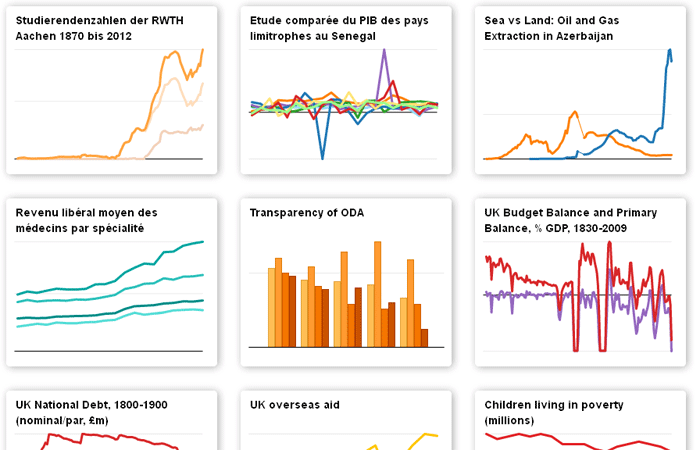 Journalists use statistics on a nearly daily basis, but visualizing data is a different story. With a boom in tools and apps to generate infographics and more, this could be changing. One such tool is Datawrapper, developed by Deutsche Welle New Media staffer Mirko Lorenz. “It’s a tool for getting started with data-driven journalism,” Lorenz said. He came up with the idea, and developed it with two programmers. “We didn’t just want to make showy charts, it’s really about the right diagram for the data at hand,” Lorenz said.
Journalists use statistics on a nearly daily basis, but visualizing data is a different story. With a boom in tools and apps to generate infographics and more, this could be changing. One such tool is Datawrapper, developed by Deutsche Welle New Media staffer Mirko Lorenz. “It’s a tool for getting started with data-driven journalism,” Lorenz said. He came up with the idea, and developed it with two programmers. “We didn’t just want to make showy charts, it’s really about the right diagram for the data at hand,” Lorenz said.
Editing desks around the world have been experimenting with the tool, including the Guardian data blog, Le Monde, a Dortmund regional newspaper – and of course, the Deutsche Welle. Datawrapper is open-source, and can be freely downloaded – it’s available in English, German and French.
In an interview with DW Akademie, Lorenz clarified what he thinks the “right” portrayal of data is all about, and explained the advantages of Datawrapper for journalists.
![]() read more
read more
Documenting life in Zimbabwe
Sweep aside the heavy curtains at the entrance of the Chapelle d’École des Beaux-Arts in Paris and you will be confronted by photographs documenting the decline of Zimbabwe under the rule of Robert Mugabe, and the lives of people suffering on so many levels.
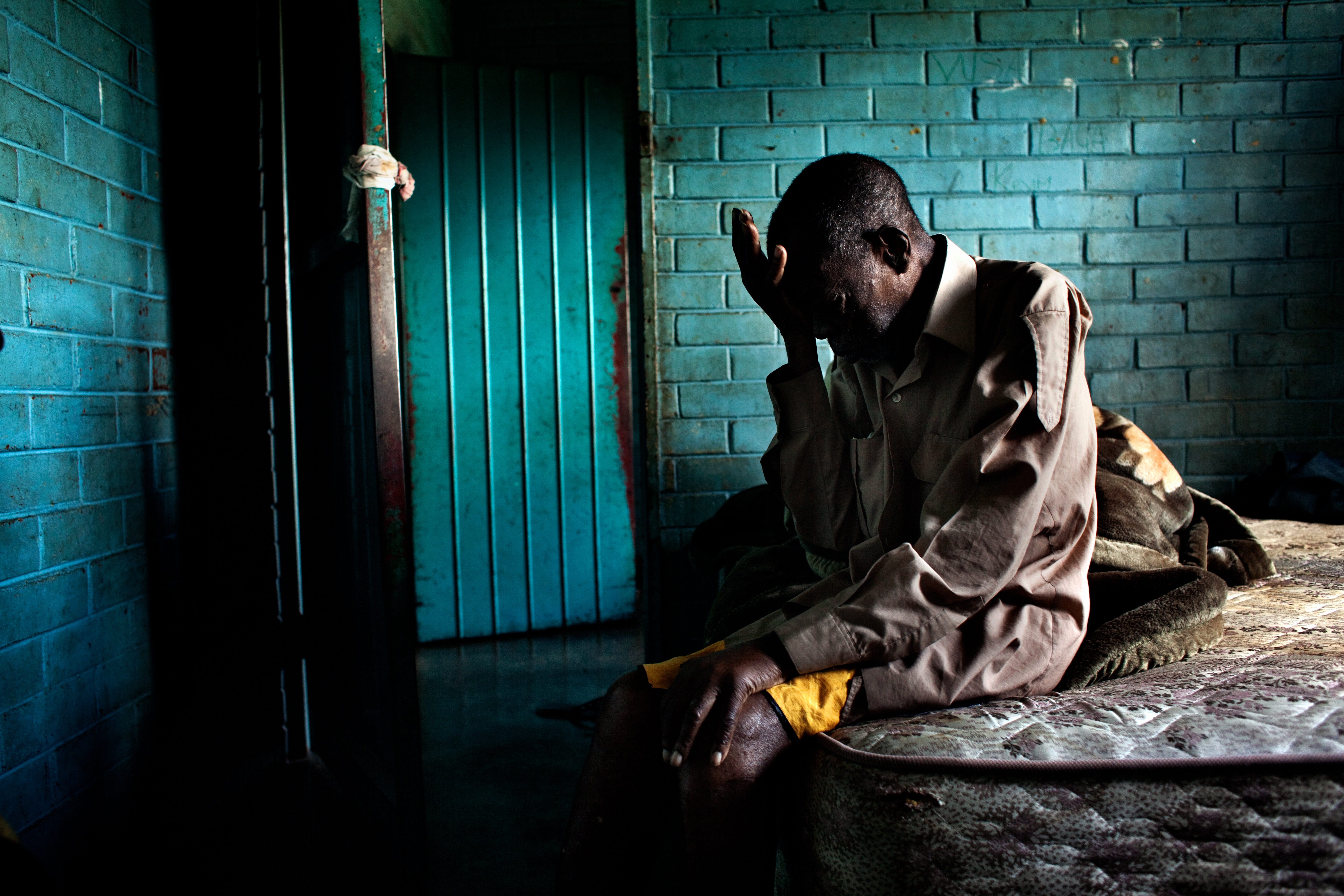
Bedridden by illness, 76 year old Nyatwa relies on his 22 year old grand-daughter to care for him. Robin Hammond, Panos, Carmignac Gestion Photojournalism Award
![]() read more
read more
Journalists@Work: Teresa Temweka Chirwa
In the first of our Journalists@Work series we meet Teresa Temweka Chirwa, an editor at Zodiak Broadcasting Station in Lilongwe, Malawi. Teresa participated in the recent DW Akademie in-house journalism training at ZBS. You can also listen to Guy Degen’s interview with Teresa below to find out more about working as a journalist in Malawi.
![]() read more
read more




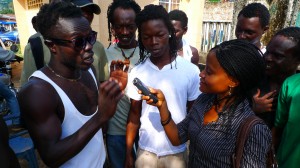
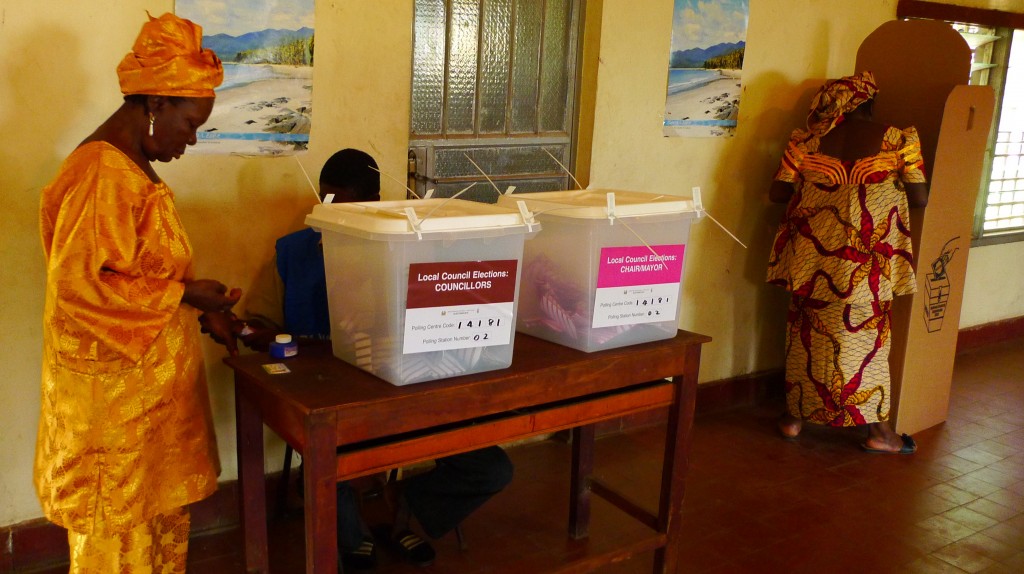
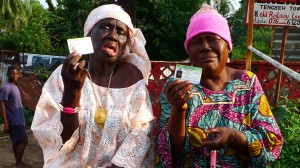
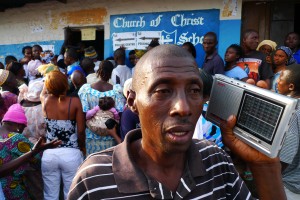
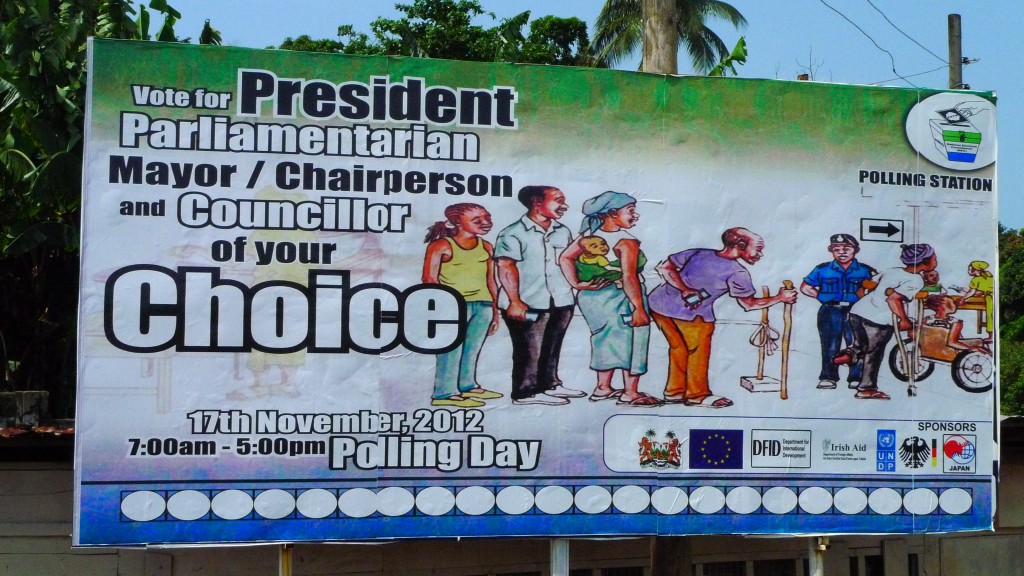
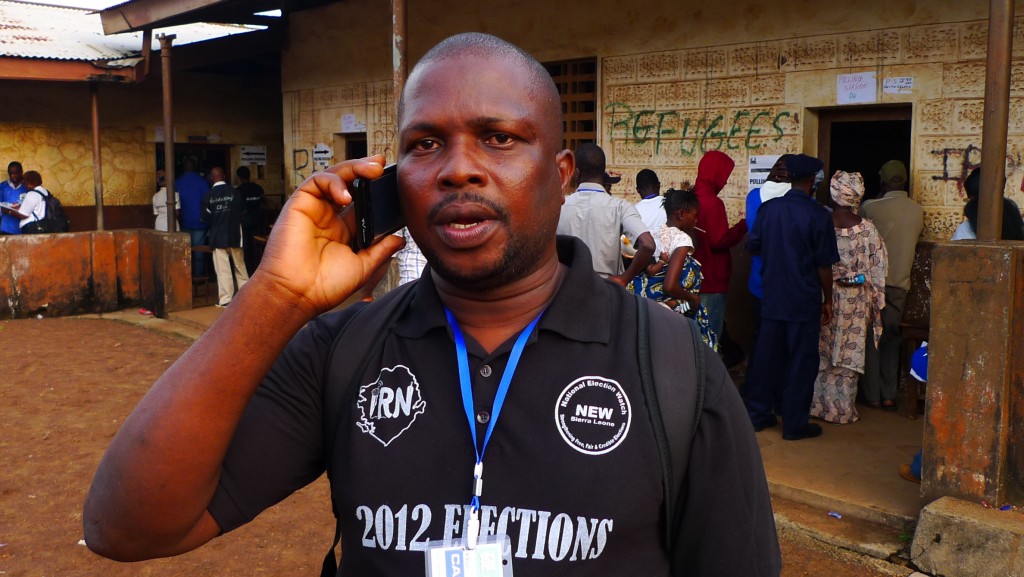
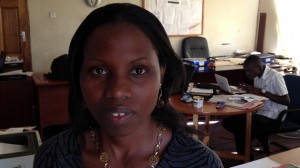




Feedback